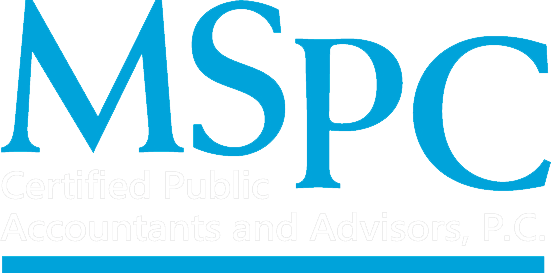The New Jersey tax amnesty program went into effect on November 15, 2018 and will last until January 15, 2019. During that short period, taxpayers may pay certain outstanding New Jersey state tax obligations (including individual gross income tax, corporation business tax, and sales and use tax, among others; local property taxes and unemployment taxes are not covered) through the program and receive amnesty from late filing penalties, late payment penalties, one-half of accrued interest, collection costs, and recovery fees. This new program applies to state tax liabilities for tax returns that were due on or after February 1, 2009 and prior to September 1, 2017, and amnesty-eligible payments of tax due and one-half of the accrued interest are determined as of November 1, 2018. All payments under this amnesty program are non-refundable (including any overpayments), and all rights to appeal are waived through participation in the program. Importantly, if any eligible taxpayer fails to pay outstanding tax liabilities through this new amnesty program, a 5% additional penalty, which cannot be abated, will be imposed at the end of the amnesty period, along with any other applicable penalties, interest, and costs.
The new amnesty program is not available to any taxpayer under criminal investigation or charge for any state tax matter by a county prosecutor or the New Jersey Attorney General. Otherwise, taxpayers who owe state tax can take advantage of the new program, as can those with unfiled returns, who must file those returns by the end of the amnesty period. Taxpayers involved in an audit or those who need to file amended returns can also participate in the amnesty program. Additionally, those taxpayers who have requested a conference with the New Jersey Division of Taxation’s Conference and Appeals Branch, or who have filed a complaint with the New Jersey Tax Court, can, pending approval by the Division, withdrawal of the protest, and waiver of all rights to an appeal, also participate in the amnesty program. Furthermore, amnesty is available to taxpayers who are subject to wage garnishment, attachment, or other collection procedures, and taxpayers are allowed a partial amnesty if they can only pay a portion of the outstanding eligible liability. Any unpaid balance will remain subject to penalties and interest at the rates applicable to the pre and post-amnesty periods, including the 5% penalty described above.
The Division will issue to those taxpayers with outstanding tax balances specialized notices containing information regarding the amnesty program, as well as login instructions, an “Amnesty ID,” and a PIN. Pursuant to the information contained on the Division’s amnesty program website, all requests for amnesty need to be filed electronically, and the concomitant payments (due by 11:59 PM on January 15, 2019) should be made by e-check or credit cards. However, the Division will accept payment by check, cashier’s check, or money order at one of its seven Regional Informational Centers. Although the Division retains the right to audit those taxpayers making payments under the amnesty program, it has not historically targeted amnesty submissions, and has specifically stated on the amnesty program website that a taxpayer’s chances of being audited should not increase if the taxpayer participates in the program. Nevertheless, taxpayers with unpaid state tax liabilities should consider having their representative contact the Division in order to precisely identify amnesty-eligible amounts and facilitate timely and successful participation in the amnesty program.
Indeed, given the short duration of this new amnesty program, as well as the complexity associated with the determination of state taxes due, the filing of necessary tax returns, and the preparation of the amnesty program documentation, taxpayers who may benefit from the amnesty program should promptly evaluate their need for professional assistance. Please contact MSPC for a confidential discussion about this new program and how it may benefit you or your business.
